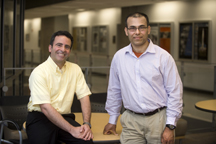The Center for Education and Research in Information Assurance and Security (CERIAS)
The Center for Education and Research inInformation Assurance and Security (CERIAS)
The Information Systems Security Association (ISSA) announced today a high-profile line-up of speakers for its fourth annual ISSA International Conference (#ISSAConf) to be held October 9-10 at the Nashville Convention Center in Nashville, TN.
The Charles Babbage Institute (CBI) is conducting a three-year NSF funded research project on computer security, which focuses on the years when the field of “computer security” was just emerging, roughly the late 1960s through the early 1990s with the shift to networked computing and the web. We are “building an infrastructure” for future historical research through conducting 30 oral histories with computer-security pioneers, collecting archival documents, creating a knowledge-networking wiki site, and publishing scholarly work in this field.
 Purdue Researchers Working on Missile-Defense Software
Purdue Researchers Working on Missile-Defense Software
Purdue University researchers are peering into the future to help the United States foil enemy missile attacks.
Professor Sam Liles talks about defining data, digital forensics, cyber weapons, potential responses to being hacked, and briefly touch on legal infrastructure underlying computer crime.
Spafford, a computer science professor at Purdue, sees issues that often aren’t discussed in cloud computing conversations. “Too often, organizations [are] told that moving things to the cloud will be safer and cheaper, and cheaper as we know is always what tends to dominate these conversations and lead to new vulnerabilities,” Spafford says.